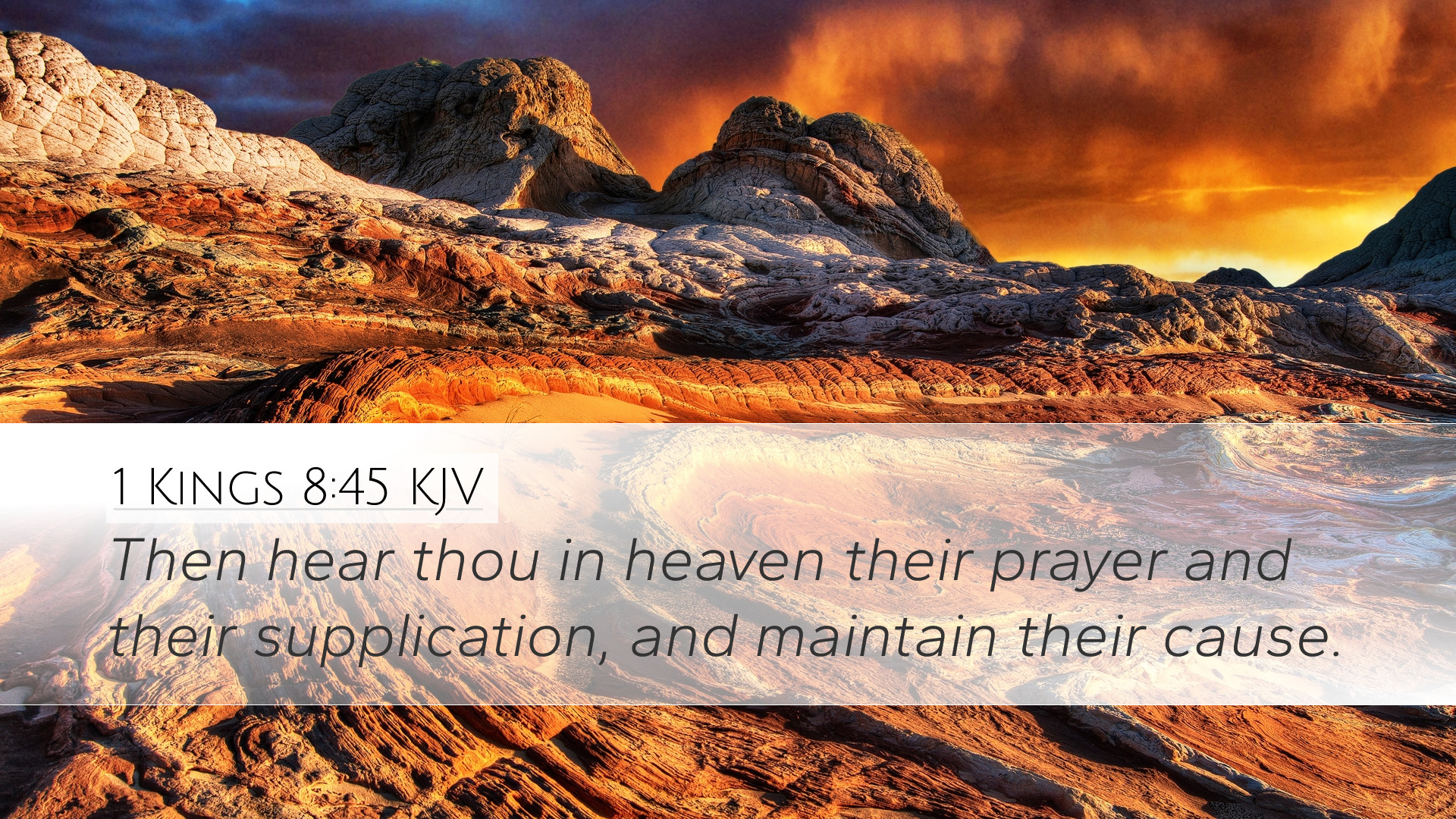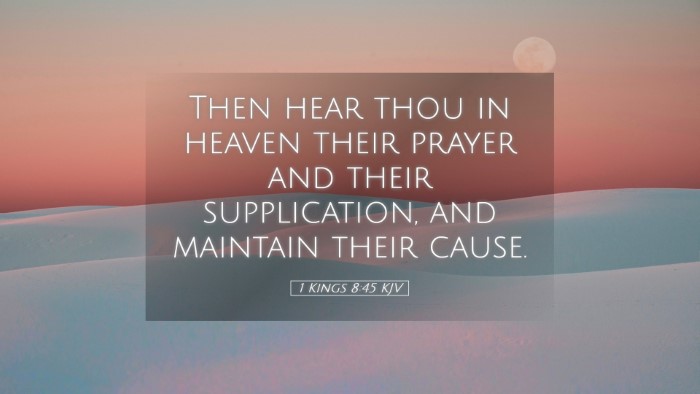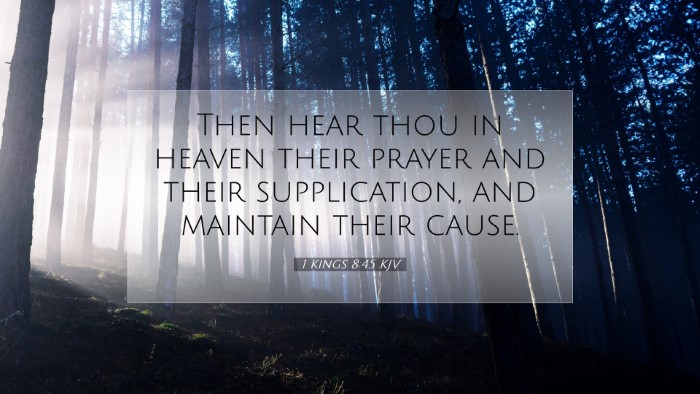Commentary on 1 Kings 8:45
Verse Text: "Then hear thou in heaven their prayer and their supplication, and maintain their cause."
This verse is part of Solomon's prayer during the dedication of the Temple, where he seeks God's attention to the prayers of His people. It reflects the deep connection between divine hearing and human supplication, a recurring theme throughout the Scriptures.
Context and Structure
This event takes place in 1 Kings 8 as Solomon dedicates the newly built Temple in Jerusalem. This prayer addresses significant issues involving the congregation of Israel and their need for divine intervention. The temple's establishment solidifies God’s presence among His people, urging them to look towards it during supplication.
Insights from Public Domain Commentaries
Matthew Henry's Commentary
Matthew Henry emphasizes the significance of prayer and its assurance of being heard by God. He notes that Solomon asks God to hear the prayers that come from within the temple, which becomes the focal point for seeking God's favor. Henry highlights that there is a collective dimension to prayer, indicating that it is not merely individualistic but involves the whole community of faith.
- God's Faithfulness: Henry asserts that God's promise to hear and answer is a grounding assurance. In his prayer, Solomon confidently endorses this covenant aspect of God’s nature, reinforcing how God’s faithfulness is central to Israel’s identity.
- Divine Intervention: The prayer expresses a profound dependence on God's intervention in Israel's affairs. Solomon clearly articulates this necessity, aligning it with the broader narrative of Israel's relationship with Yahweh.
Albert Barnes' Notes on the Bible
Barnes provides a detailed examination of the conditions under which God is said to hear prayers. He suggests that this verse encapsulates the covenantal relationship between God and Israel. It conveys an understanding that when the people look towards the Temple, their prayers resonate with God's agenda for justice and mercy.
- The Temple as a Mediator: Barnes elucidates that the Temple serves as a mediator for the people’s prayers. It is a symbol of God's presence, making it crucial for the Israelites to approach God correctly.
- Maintenance of Cause: The phrase "maintain their cause" indicates a plea for justice, underscoring the expectation that God will advocate for His people. Barnes suggests that this phrase speaks to the heart of God's role as judge and protector.
Adam Clarke's Commentary
Clarke offers profound insights into the nature of supplication. He focuses on the need for sincerity in prayer and highlights the importance of the Temple as a sacred space where God interacts with humanity.
- Importance of a Place of Worship: Clarke emphasizes that the physical act of turning towards the Temple symbolizes a heart turned towards God. It affirms the notion that the place of worship plays a vital role in the life of believers.
- General Principles of Prayer: He stresses that prayers should be offered in the right spirit and with the right intentions. Clarke reminds readers that God’s willingness to hear and answer is contingent upon the heart's condition, echoing biblical principles of repentance and contrition.
Theological Implications
The verse raises crucial theological implications regarding prayer and intercession:
- Intercessory Prayer: This passage serves as a paradigm for how believers can intercede for others. It indicates that there is power in collective prayer as well as an assurance that God is attentive to the requests of His people.
- Covenant Relationship: Solomon’s invocation reaffirms the covenantal relationship established by the Lord. The importance of maintaining such a relationship is crucial for understanding God’s engagement with humanity.
- God’s Justice: The plea for God to "maintain their cause" resonates with the themes of justice and equity found throughout Scripture. It suggests that God not only listens to prayers but is actively involved in the lives of His people.
Conclusion
1 Kings 8:45 encapsulates a pivotal moment of worship and supplication in the history of Israel. Through Solomon’s prayer, we see the intersection of divine response and human need. The public domain commentaries by Matthew Henry, Albert Barnes, and Adam Clarke collectively offer rich insights that highlight the theological depth of this verse, encouraging pastors, students, theologians, and scholars to reflect on the intricate relationship between God and His people.


